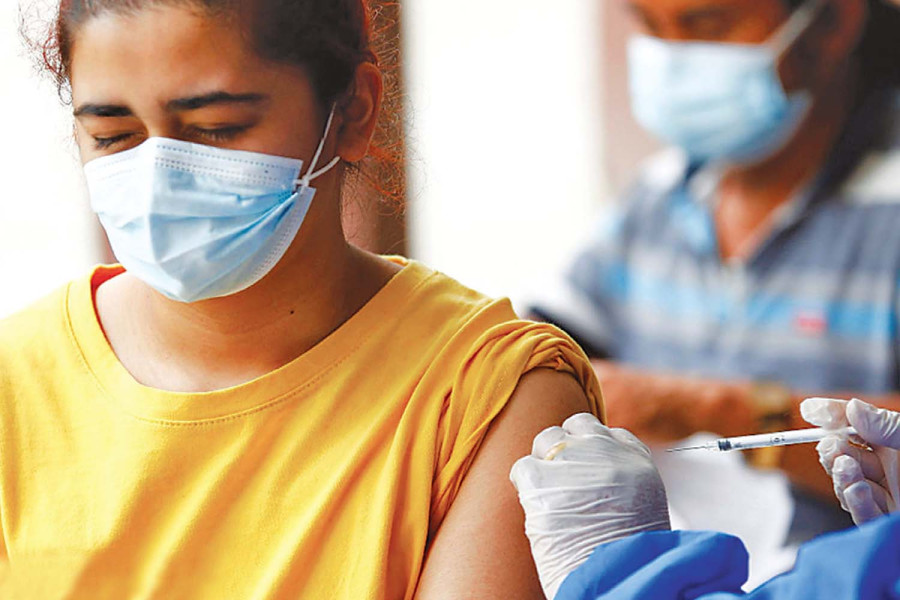Health
Girls aged 10-14 to get single-dose HPV shot from February
The vaccine provides crucial protection against cervical cancer, which is a leading cause of death among Nepali women.
Post Report
The Ministry of Health and Population has announced that girls between 10 and 14 years of age will be inoculated with a single-dose of the human papillomavirus (HPV) vaccine during a nationwide vaccination drive scheduled to start on February 5.
The decision to administer a single dose of the HPV vaccine is in line with the recommendation of the World Health Organisation, and the National Immunisation Advisory Committee, an expert panel in the country.
“‘We got a recommendation for the single-dose HPV vaccine from the UN health body on October 4, and our expert panel [National Immunisation Advisory Committee] also decided to follow the WHO’s recommendation,” said Dr Abhiyan Gautam, chief of the Immunisation Section at the Family Welfare Division under the Department of Health Services. “We have decided to administer only a single dose vaccine to protect against HPV.”
Human papillomavirus is a viral infection that spreads through skin-to-skin contact and is a leading cause of cervical cancer. Cervical cancer is the second-most common cancer in the developing world and a major cause of death among Nepali women. It is estimated that hundreds of women are diagnosed with cervical cancer in Nepal every year.
According to the BP Koirala Memorial Cancer Hospital in Bharatpur, more than 700 women suffering from cervical cancer seek treatment at the hospital every year.
Experts say early treatment can prevent up to 80 percent of cervical cancer cases.
Countries like Bhutan, Sri Lanka, Thailand and the Maldives have introduced HPV vaccines nationwide, while India and Indonesia have introduced them in select districts.
Last year, the country purchased 20,000 doses of the HPV vaccine and administered them to around 9,000 girls aged between 14 and 15 years in all seven provinces. Two doses of the HPV vaccine were administered within a six-month period.
The WHO Strategic Advisory Group of Experts on Immunisation (SAGE) had evaluated the evidence emerging over the past years that single-dose schedules provide comparable efficacy to two or three-dose regimens and concluded that a single-dose HPV vaccine delivers solid protection against the virus that causes cervical cancer.
Meanwhile, officials at the Immunisation Section say preparations are in full swing for the nationwide HPV drive. Over 1.68 million girls between 10 and 14 years old will be immunised in a nationwide HPV vaccination campaign.
“We have already received over 1.5 million doses of vaccine, which are being supplied to the provincial stores,” said Gautam. ‘The final batch of the vaccine will arrive soon. Other preparations, including training to health workers, have been completed.”
The Global Alliance for Vaccine and Immunisation (GAVI) has committed to supply the vaccine doses required for the campaign free of cost and also cover the campaign’s operational costs, officials say.
The government has decided to include the HPV vaccine in the routine immunisation list following the compilation of the nationwide drive.
It is estimated that there are around 350,000 girls aged 10 years who will be inoculated with the HPV vaccine.
Nepal will need to cover a certain percentage of the cost of the vaccine once it is included in the regular immunisation list, officials say.
The UN health body says HPV vaccination is recommended as part of a coordinated strategy to prevent cervical cancer and other diseases caused by the virus.




 14.12°C Kathmandu
14.12°C Kathmandu














